Nori Equine BMP1 ELISA Kit
$508.00 – $916.00
This ELISA kit is for quantification of BMP1 in equine. This is a quick ELISA assay that reduces time to 50% compared to the conventional method, and the entire assay only takes 3 hours. This assay employs the quantitative sandwich enzyme immunoassay technique and uses biotin-streptavidin chemistry to improve the performance of the assays. An antibody specific for BMP1 has been pre-coated onto a microplate. Standards and samples are pipetted into the wells and any BMP1 present is bound by the immobilized antibody. After washing away any unbound substances, a detection antibody specific for BMP1 is added to the wells. Following wash to remove any unbound antibody reagent, a detection reagent is added. After intensive wash a substrate solution is added to the wells and color develops in proportion to the amount of BMP1 bound in the initial step. The color development is stopped, and the intensity of the color is measured.
Alternative names for BMP1: Bone morphogenetic protein 1 (BMP1)
This product is for Laboratory Research Use Only not for diagnostic and therapeutic purposes or any other purposes.
- Description
- How Elisa Works
- Product Citation (0)
- Reviews (0)
Description
Nori Equine BMP1 ELISA Kit Summary
Alternative names for BMP1: Bone morphogenetic protein 1 (BMP1)
Alternative names for equine: horse
| Assay Type | Solid Phase Sandwich ELISA |
| Format | 96-well Microplate or 96-Well Strip Microplate |
| Method of Detection | Colorimetric |
| Number of Targets Detected | 1 |
| Target Antiben Accession Number | XP_005607717.2 |
| Assay Length | 3 hours |
| Quantitative/Semiquantitative | Quantitative |
| Sample Type | Plasma, Serum, Cell Culture, Urine, Cell/Tissue Lysates, Synovial Fluid, BAL, |
| Recommended Sample Dilution (Plasma/Serum) | No dilution for sample <ULOQ; sufficient dilution for samples >ULOQ |
| Sensitivity | 9 pg/mL |
| Detection Range | 46.94-3000 pg/mL |
| Specificity | Equine BMP1 |
| Cross-Reactivity | < 0.5% cross-reactivity observed with available related molecules, < 50% cross-species reactivity observed with species tested. |
| Interference | No significant interference observed with available related molecules |
| Storage/Stability | 4 ºC for up to 6 months |
| Usage | For Laboratory Research Use Only. Not for diagnostic or therapeutic use. |
| Additional Notes | The kit allows for use in multiple experiments. |
Standard Curve
Kit Components
1. Pre-coated 96-well Microplate
2. Biotinylated Detection Antibody
3. Streptavidin-HRP Conjugate
4. Lyophilized Standards
5. TMB One-Step Substrate
6. Stop Solution
7. 20 x PBS
8. Assay Buffer
Other Materials Required but not Provided:
1. Microplate Reader capable of measuring absorption at 450 nm
2. Log-log graph paper or computer and software for ELISA data analysis
3. Precision pipettes (1-1000 µl)
4. Multi-channel pipettes (300 µl)
5. Distilled or deionized water
Protocol Outline
1. Prepare all reagents, samples and standards as instructed in the datasheet.
2. Add 100 µl of Standard or samples to each well and incubate 1 h at RT.
3. Add 100 µl of Working Detection Antibody to each well and incubate 1 h at RT.
4. Add 100 µl of Working Streptavidin-HRP to each well and incubate 20 min at RT.
5. Add 100 µl of Substrate to each well and incubate 5-30 min at RT.
6. Add 50 µl of Stop Solution to each well and read at 450 nm immediately.
Background:
Bone morphogenetic protein 1 (BMP1), is a protein which in humans is encoded by the BMP1 gene (1, 2). There are seven isoforms of the protein created by alternate splicing. BMP1 belongs to the peptidase M12A family of bone morphogenetic proteins (BMPs). It induces bone and cartilage development. Unlike other BMPs, it does not belong to the TGFβ superfamily. It was initially discovered to work like other BMPs by inducing bone and cartilage development. It however, is a metalloprotease that cleaves the C-terminus of procollagen I, II and III. It has an astacin-like protease domain. It has been shown to cleave laminin 5 and is localized in the basal epithelial layer of bovine skin. The BMP1 locus encodes a protein that is capable of inducing formation of cartilage in vivo. Although other bone morphogenetic proteins are members of the TGF-beta superfamily, BMP1 encodes a protein that is not closely related to other known growth factors. BMP1 protein and procollagen C proteinase (PCP), a secreted metalloprotease requiring calcium and needed for cartilage and bone formation, are identical. PCP or BMP1 protein cleaves the C-terminal propeptides of procollagen I, II, and III and its activity is increased by the procollagen C-endopeptidase enhancer protein. The BMP1 gene is expressed as alternatively spliced variants that share an N-terminal protease domain but differ in their C-terminal region.
Reference
- Tabas JA, Zasloff M, Wasmuth JJ, Emanuel BS, Altherr MR, McPherson JD, Wozney JM, Kaplan FS (February 1991). “Bone morphogenetic protein: chromosomal localization of human genes for BMP1, BMP2A, and BMP3”. Genomics 9 (2): 283–9
- Mac Sweeney A, Gil-Parrado S, Vinzenz D, Bernardi A, Hein A, Bodendorf U, Erbel P, Logel C, Gerhartz B (December 2008). “Structural basis for the substrate specificity of bone morphogenetic protein 1/tolloid-like metalloproteases”. J. Mol. Biol. 384 (1): 228–39.
Be the first to review “Nori Equine BMP1 ELISA Kit”
You must be logged in to post a review.
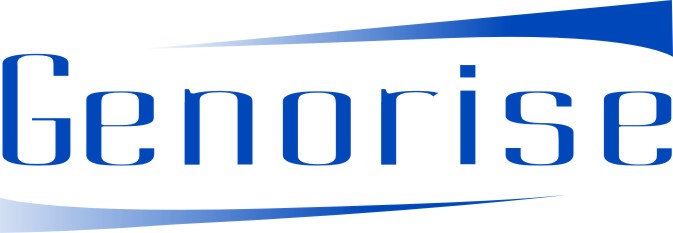






















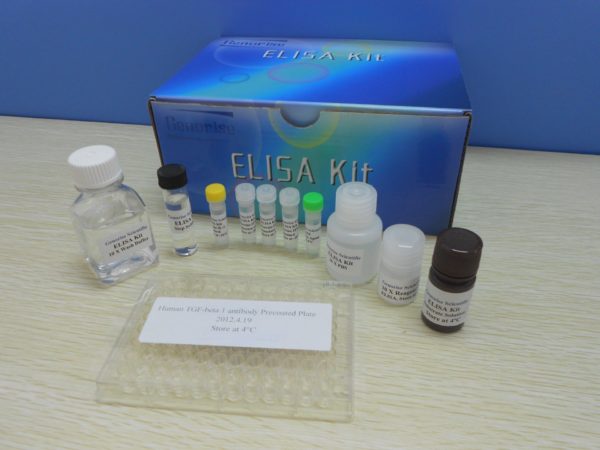
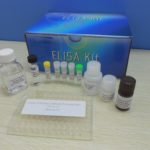

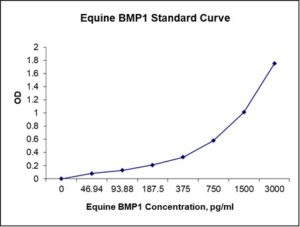
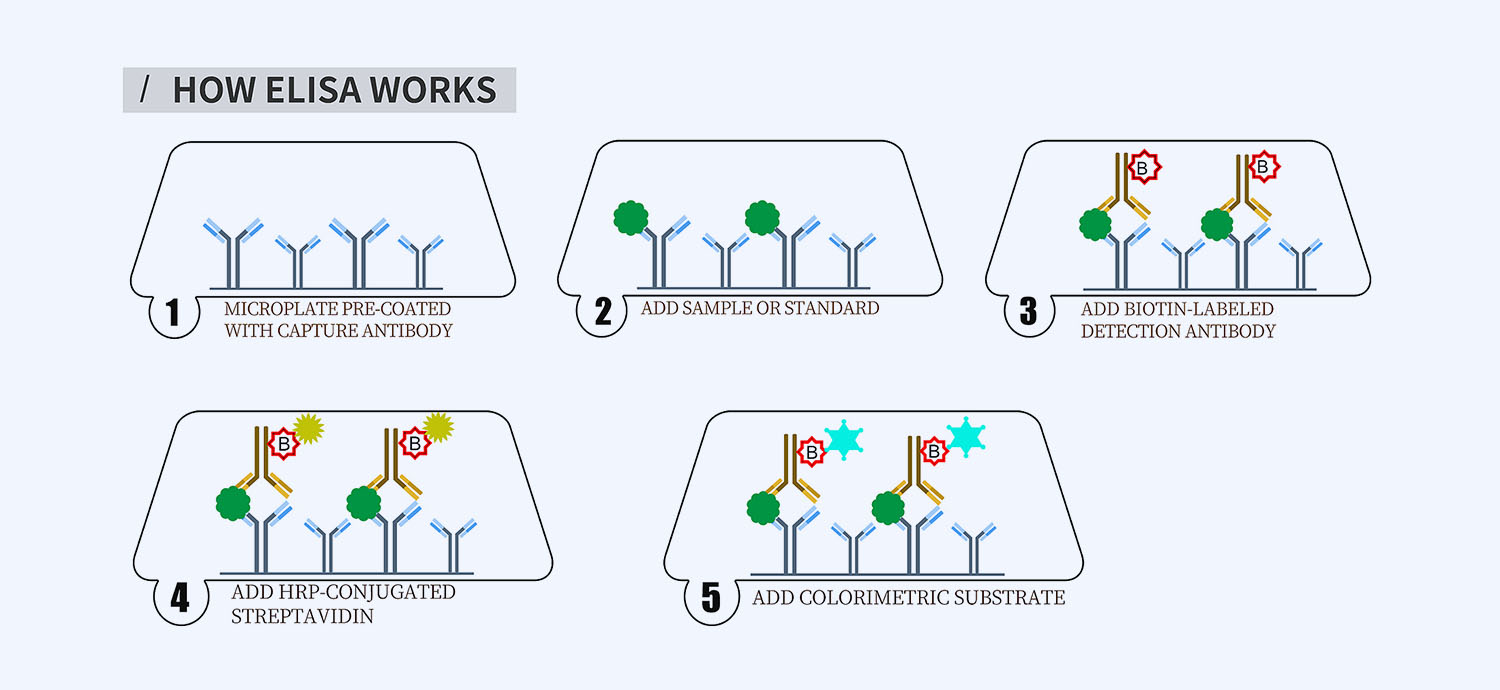
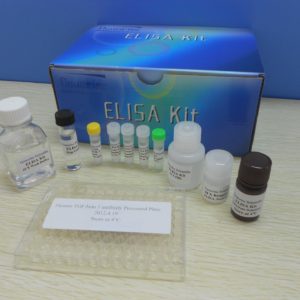
Reviews
There are no reviews yet.